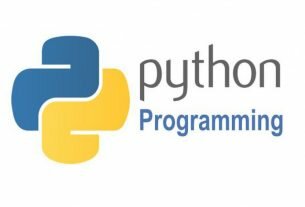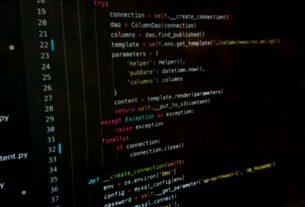Question or problem about Python programming:
I want to apply a lambda function to a DataFrame column using if…elif…else within the lambda function.
The df and the code are smth. like:
df=pd.DataFrame({"one":[1,2,3,4,5],"two":[6,7,8,9,10]})
df["one"].apply(lambda x: x*10 if x<2 elif x<4 x**2 else x+10)
obviously this way it is not working.
Is there a way to apply if....elif....else to lambda?
How can I relize the same result with List Comprehension?
Thanks for any response.
How to solve the problem:
Solution 1:
Nest if .. elses:
lambda x: x*10 if x<2 else (x**2 if x<4 else x+10)
Solution 2:
I do not recommend the use of apply here: it should be avoided if there are better alternatives.
For example, if you are performing the following operation on a Series:
if cond1:
exp1
elif cond2:
exp2
else:
exp3
This is usually a good use case for np.where or np.select.
numpy.where
The if else chain above can be written using
np.where(cond1, exp1, np.where(cond2, exp2, ...))
np.where allows nesting. With one level of nesting, your problem can be solved with,
df['three'] = (
np.where(
df['one'] < 2,
df['one'] * 10,
np.where(df['one'] < 4, df['one'] ** 2, df['one'] + 10))
df
one two three
0 1 6 10
1 2 7 4
2 3 8 9
3 4 9 14
4 5 10 15
numpy.select
Allows for flexible syntax and is easily extensible. It follows the form,
np.select([cond1, cond2, ...], [exp1, exp2, ...])
Or, in this case,
np.select([cond1, cond2], [exp1, exp2], default=exp3)
df['three'] = (
np.select(
condlist=[df['one'] < 2, df['one'] < 4],
choicelist=[df['one'] * 10, df['one'] ** 2],
default=df['one'] + 10))
df
one two three
0 1 6 10
1 2 7 4
2 3 8 9
3 4 9 14
4 5 10 15
and/or (similar to the if/else)
Similar to if-else, requires the lambda:
df['three'] = df["one"].apply(
lambda x: (x < 2 and x * 10) or (x < 4 and x ** 2) or x + 10)
df
one two three
0 1 6 10
1 2 7 4
2 3 8 9
3 4 9 14
4 5 10 15
List Comprehension
Loopy solution that is still faster than apply.
df['three'] = [x*10 if x<2 else (x**2 if x<4 else x+10) for x in df['one']] # df['three'] = [ # (x < 2 and x * 10) or (x < 4 and x ** 2) or x + 10) for x in df['one'] # ] df one two three 0 1 6 10 1 2 7 4 2 3 8 9 3 4 9 14 4 5 10 15
Solution 3:
For readability I prefer to write a function, especially if you are dealing with many conditions. For the original question:
def parse_values(x):
if x < 2:
return x * 10
elif x < 4:
return x ** 2
else:
return x + 10
df['one'].apply(parse_values)



